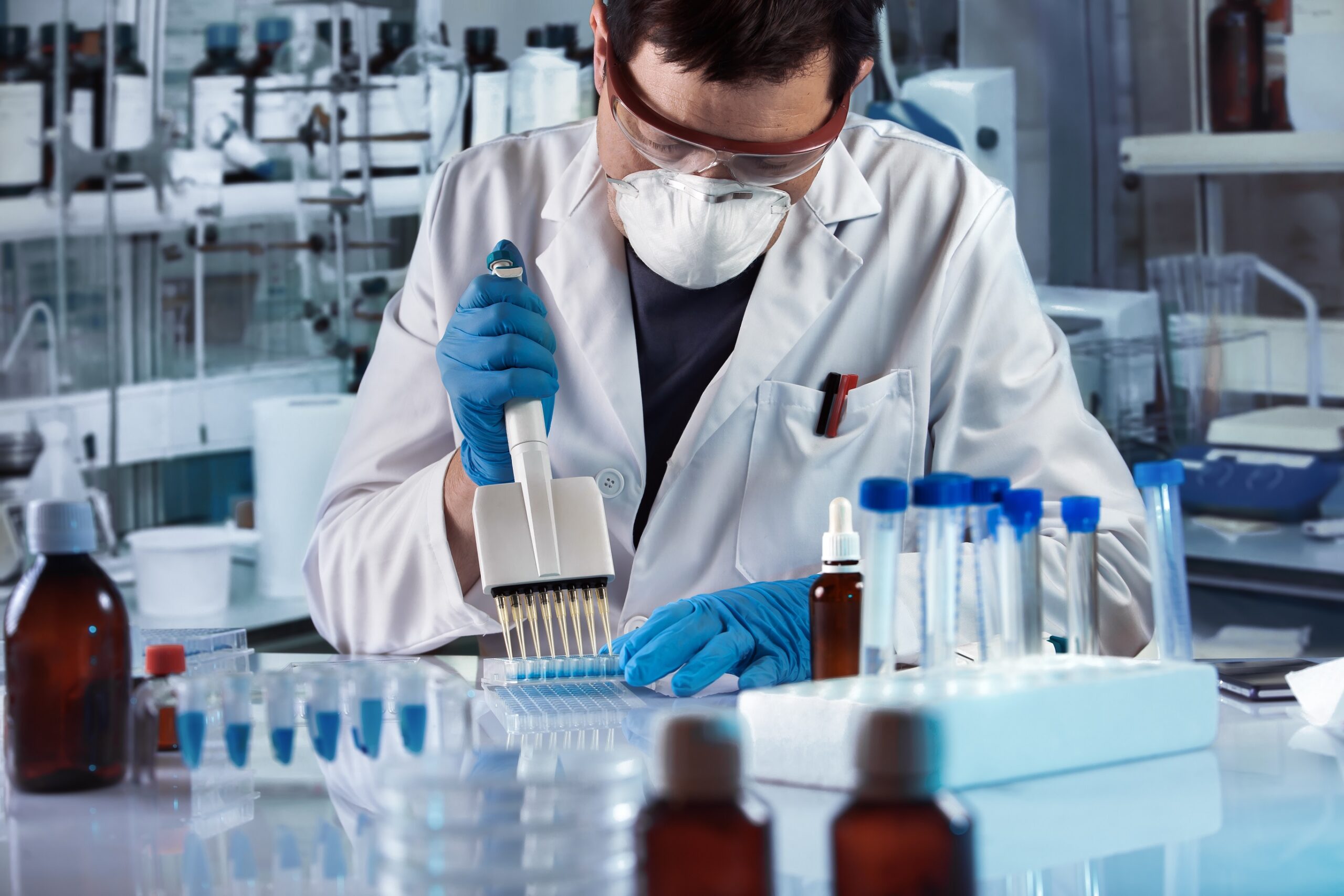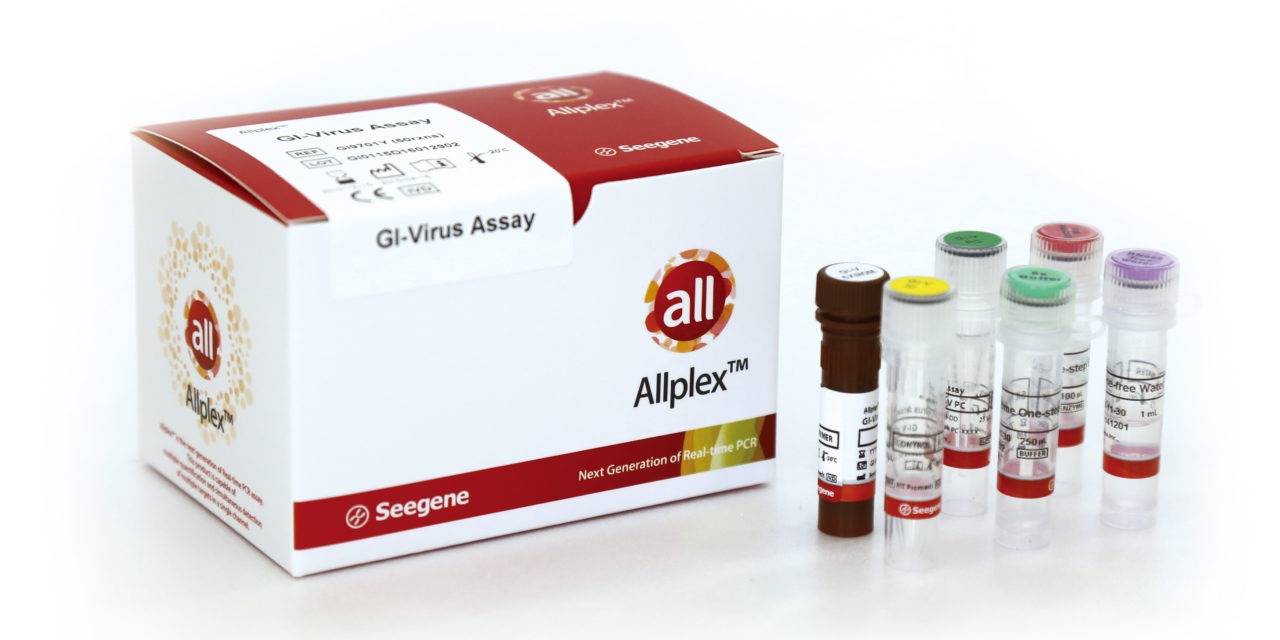
With new SARS-CoV-2 mutations and variants presenting the latest worrying chapter in the global health crisis, it was only a matter of time before a company stepped up to the plate in response – and, earlier this month, South Korean firm Seegene did exactly that, announcing what it claims is the world’s first Covid-19 diagnostic variant test.
The Seoul-based biotech company harnessed its 20 years of experience developing innovative disease detection solutions to produce this potentially momentous IVD device.
If the Allplex SARS-CoV-2 Variants I Assay really does prove capable of detecting and differentiating between multiple coronavirus variants in a single reaction – something existing PCR-based methods aren’t able to do – it may hold the key to more effective, widespread testing moving forward.
We take a closer look at Seegene and the story behind its groundbreaking Covid-19 diagnostic variant test.
History of Seegene
Seegene was established in September 2000 after being spun out of the Institute of Life Sciences at EWHA Women’s University in Seoul.
The following year, the company developed its ACP technology – an innovative primer system designed to amplify target genes with high sensitivity, specificity and reproducibility in PCR testing.
Over the next decade, Seegene went on to develop several other diagnostic technologies and testing kits, entered into a licensing agreement with American life sciences firm Sigma-Aldrich for one of its own products, and established offices in the US and Japan.
Having also received numerous awards recognising its innovation efforts in the diagnostic sector throughout the two years prior, Seegene took another big step forward in 2012 – signing a product development agreement with prominent US chemicals firm DuPont.

The company established further subsidiaries in Italy and the Middle East before gaining its first ever US FDA (Food and Drug Administration) clearance, as its HSV Molecular Test for detecting the type 1 and type 2 herpes simplex viruses gained regulatory approval in February 2015.
Other milestones in Seegene’s recent history include collaboration and supply agreements with several major firms – most notably Danaher subsidiary Beckman Coulter, QIAGEN, Becton Dickinson (BD) and Hologic – developing a handful of other new technologies, and establishing business divisions in North America, Germany and Brazil.
Today, it makes diagnostic assays for numerous conditions ranging from respiratory and gastrointestinal tract infections to tuberculosis, sepsis, meningitis, and several sexually-transmitted diseases.
And, in 2020, having generated sales in excess of $100m the previous year, and with more than 500 employees worldwide, Seegene did what more-or-less every company in the broader healthcare industry was forced to do almost overnight, and turned its attention towards tackling the global pandemic.
The ‘world’s first’ Covid-19 diagnostic variant test
One of Seegene’s flagship diagnostic products is its CE-marked line of Allplex Respiratory Panel Assays, which enable the detection and identification of 26 different pathogens using one-step, real-time RT-PCR testing.
This includes 16 viruses and seven bacteria that cause numerous conditions, from influenza, parainfluenza and RSV (respiratory syncytial virus), to pneumonia and coronavirus.
Last year, Seegene utilised this extensive experience in diagnosing respiratory infections to develop its Allplex 2019-nCoV Assay – a test used to detect SARS-CoV-2 in samples taken from patients suspected of having Covid-19. This gained an EUA (emergency use authorisation) from the FDA on 21 April 2020.
In doing so, Seegene joined a long and ever-expanding list of global companies to have gained conditional regulatory approval for a coronavirus diagnostic.
On 1 February 2021, however, the Seoul-based firm did something no other manufacturer or researcher had achieved to date, announcing the development of the “world’s first” Covid-19 variant test.
Its Allplex SARS-CoV-2 Variants I Assay can detect and differentiate between genetic variations of the virus, including those recently identified in the UK, South Africa, and Brazil, that may yet prove to be more contagious and more fatal than the original coronavirus variant.
On top of this, Seegene claims its new test can pre-screen suspicious new variants, providing insight on additional variations of Covid-19 in the future. By utilising its big data auto-surveillance system, Seegene also plans to closely monitor and analyse a worldwide database on all variants of Covid-19, allowing it to quickly respond with fresh product development where necessary.
According to a recent company statement, Seegene plans to prioritise supplying its variant tests to global organisations and governments, and will continue to “fulfill its duty as a leading molecular diagnostics company by closely working with health authorities around the world”.
How do you test for different variants?
While the Allplex SARS-CoV-2 Variants I Assay integrates “at least 10” of the company’s proprietary technologies, its TOCE multiplex real-time PCR method is potentially the most important of these when it comes to differentiating between multiple Covid-19 variants.
TOCE (Tagging Oligonucleotide Cleavage and Extension) technology allows the test to detect and target the specific spot where mutation occurs.
This enables the precise detection of up to 20 different targets within the same sample, allowing the novel coronavirus – as well as any of its known mutations – to be identified in one tube of reagent.
TOCE therefore overcomes existing technical limitations of target-based, real-time PCR technology and, through unique signal generation and melting temperature analysis by novel components, fully exploits the potential held by high multiplex analysis.
According to Seegene, governments and health authorities around the world are currently forced to rely on individual sample sequencing to filter out virus variants from positive Covid-19 cases.
However, this slows down mass testing and ongoing efforts to control the virus’ spread. Existing PCR methods can screen and identify new mutations, but doing this in a single tube of reagent rather than via multiple reactions had not been possible until Seegene rolled out its diagnostic variant test.
While the company is yet to detail any steps it has taken to gain regulatory approval for the new test, an official from Seegene said its Allplex SARS-CoV-2 Variants I Assay will “significantly boost massive testing ability in the fight against the global spread of mutant viruses when the time is key to controlling the pandemic”.






